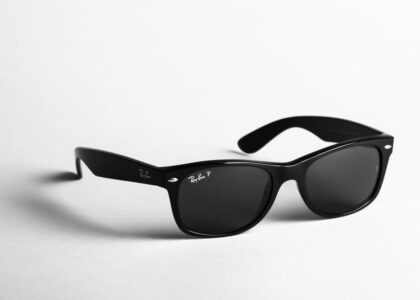Do I need a degree in journalism to become a journalist? What types of publishing degrees and media studies degrees are there? Find out what to study at uni for careers involving the written word.
You have various options if you want to take a degree in order to start an editorial career. By ‘editorial careers’ we mean working in news reporting, feature/blog writing, copy-editing, commissioning, editorial research and book publishing.
Which should you choose: a degree in publishing, a journalism degree or a media studies degree – or would any good degree do? Read on, and study individual course descriptions carefully, as the differences between courses can affect your position in the media jobs market.
Can I get a job in editorial with a non-media degree?
You can get into a media career with a degree in any subject. In some cases you’ll need to take an additional qualification after you graduate – for example a postgraduate journalism course if you want a career as a journalist. The most important thing is to get lots of relevant experience and gather evidence of what you’ve achieved through this, such as creating a portfolio of interesting pieces if you want a job that involves writing. If you’ve studied for a journalism degree but haven’t had any articles published it’s far less impressive than if you have a biology degree yet have edited a student newspaper.
Different degree subjects have different advantages. For example, if you enjoy writing you might like an essay-based course, while science or technical degrees can give you an advantage if you apply for jobs working on products that specialise in these areas.
Publishing degree options
There are various kinds of publishing degree. The first are academic degrees involving the study of the history of publishing and are often combined with English or drama. Although these types of publishing degree do not prevent you from working in the media they are not practical courses focused upon careers in it. In the same way, publishing degrees that combine the academic study of publishing with creative writing are not designed with the workplace in mind, although they are relevant if you wish to work in fiction publishing.
However, there are degrees in publishing that are exclusively geared around starting a career in the industry. Typically, these include writing, editing, proofreading and the laws that affect publishing. They also cover:
- production (eg how print, video and digital media work and how much they cost)
- the basics of design
- how publishing works as a business
- marketing.
Those four business and production-related disciplines distinguish a degree in publishing from a journalism degree or a media studies degree. Degrees in publishing are intended to lead towards jobs such as:
- editorial careers in books and academic journals, and sometimes magazines and websites
- marketing roles in publishing
- working in print production for a large book publishing company where you have to estimate the cost of paper, ink and printing time, and negotiate printing contracts
- working in a publishing contracts department where you draw up legally binding documents that cover the work and payment of writers and other freelancers.
Publishing degrees aren’t the most relevant if you want a job that primarily involves writing – for example producing news or features. If you want your studies to focus on this aspect, explore journalism degrees (below).
Journalism degree options
Long gone is the era when journalism degrees only focused upon newspaper reporting. Most now cover print (newspaper and magazine) journalism, web and other digitally based reporting and broadcasting. The industry term for this is multi-platform news. However there are specialist degrees that focus only on magazine journalism or broadcast journalism, for example. There are also degrees that concentrate on specific fields, such as sports, fashion, investigative, political or financial journalism.
Students who want to report news for any medium should study a degree that is approved by the National Council for the Training of Journalists (NCTJ). You’ll typically learn the following on any NCTJ-accredited degree, whatever branch of journalism it covers:
- reporting
- public affairs (you’ll need to understand how the state works)
- shorthand – so you can take notes very quickly
- media law
- media ethics
- law court reporting – that is, what is legally possible to report while a trial is in court and hasn’t reached a verdict.
In theory, magazine journalists don’t need to be NCTJ trained unless a magazine is based around current affairs. In practice, employers often like the skills and knowledge that an accredited course brings, such as the ability to write shorthand and an understanding of media law.
Students who have studied a general degree in journalism will find that their course is applicable to magazine journalism. However a degree in magazine journalism, which concentrates on writing longer features, may be less acceptable for a news reporting role, where the emphasis is upon quickly breaking the latest ‘hard news’ stories.
Finally, another option is to take a degree in journalism combined with public relations (PR), which will also make you employable in PR. This involves working for an organisation that needs to promote itself to journalists.




